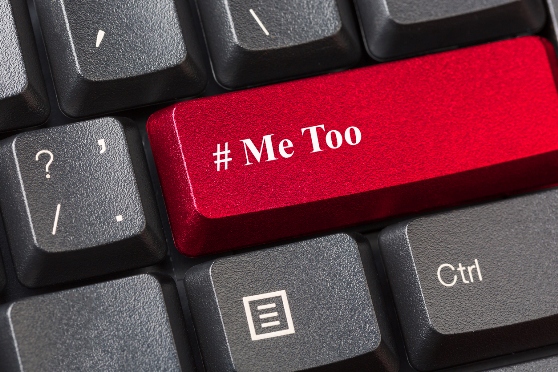By Shruthi De Visser
A few weeks ago Sri Lanka’s own #MeToo movement came out in strong condemnation of incidents of sexual harassment that came to light as a number of professionals began to speak out. Journalists, mostly women, began sharing the harrowing experiences they have encountered in the newsrooms of Sri Lanka. They courageously narrated on platforms like Twitter painfully personal experiences of verbal and physical sexual harassment from male counterparts, who were often in positions of power. Several media organizations also initiated panel discussions comprising women and men to further push these issues in public fora with the aim of strengthening accountability mechanisms within the industry.
As the dust settles, one can only hope that the stories that these women have shared not simply to recount their experiences but to also encourage others to come forward and speak up will not be in vain. Following the flurry of allegations against journalists in positions of power (who were unnamed), Government Spokesman and Minister of Mass Media Keheliya Rambukwella stated he had asked the Government Information Department to launch an investigation of the reports and to take measures to ensure that women journalists were safe in the newsrooms.
While the minister’s statement may be well-intentioned, Sri Lanka has a woeful history of allowing issues of this nature to fall through the cracks. The only legal mechanism to address this, Section 345 of the Penal Code, has hardly been used effectively. However, in the backdrop of a long and concerning the history of sexual harassment both in public and private, legal responses alone are inadequate. Deep-seated structural and social inequalities must also be addressed in order to meet this challenge head-on.
In the wake of social movements for change, an important question we must ask ourselves is how we can sustain these movements so they do not become stagnated as mere moments in history. The #MeToo movement has had a global impact since its origins in the US. It has promoted legislative changes in countries like France and led to the resignation of high-profile individuals who had engaged in years of harassment. What can it do for Sri Lanka? It has provoked an important discussion both on social and print media about harassment, about women, and about gender inequality. It has even brought up questions about civil society and allegations against those who are activists and proponents of justice. It pushes the boundary on these discussions and urges for a nuanced understanding of how gender inequality can be pervasive even within systems that appear to be progressive and just. But these conversations alone are not enough. How can we stand with those who have come forward with their stories but also push for change that has been eluding women for far too long?
Globally when the #MeToo movement has gained traction and engendered change, it has been often when people have pushed for immediate change. To strike while the iron is hot is exactly what the #MeToo moment in Sri Lanka needs now. We have encountered instances where strong informed advocacy and pressure have led to certain positive, constructive change and actions by the government. Does civil society, and now media institutions, possess the determination and attention span to keep at this? Roar Media’s editorial pledged to stand by and support any industry-led initiative to tackle this issue. But where will this initiative come from? We hope that Sri Lanka will not let this moment pass. A stronger push for gender justice coupled with more voices joining victims could perhaps sustain this movement. While the onus to bring perpetrators to justice must not lie with victims, allies can ascertain that perpetrators are named and made accountable. While this #MeToo moment may have originated in the newsrooms it can surely pervade other institutions as well, as seen by more stories that came out about similar incidents in state universities and the legal profession. Can we look at our own organizations and workplaces and call out and name those in power who engage in harassment? Are we able to prioritize justice and accountability as part of sustaining our institutions? For as long as women continue to be unsafe and insecure in their places of work, Sri Lanka will not thrive.
-Women and Media Collective


